The Essentials for Entrepreneurs
Indonesia is a country that has been gaining popularity as a sourcing destination for entrepreneurs in recent years. With a population of over 270 million and a rapidly expanding middle class, Indonesia presents a wealth of opportunities for businesses looking to expand their sourcing operations. However, navigating the Indonesian market can be challenging for those who are unfamiliar with the country’s unique business culture, regulatory environment, and infrastructure.
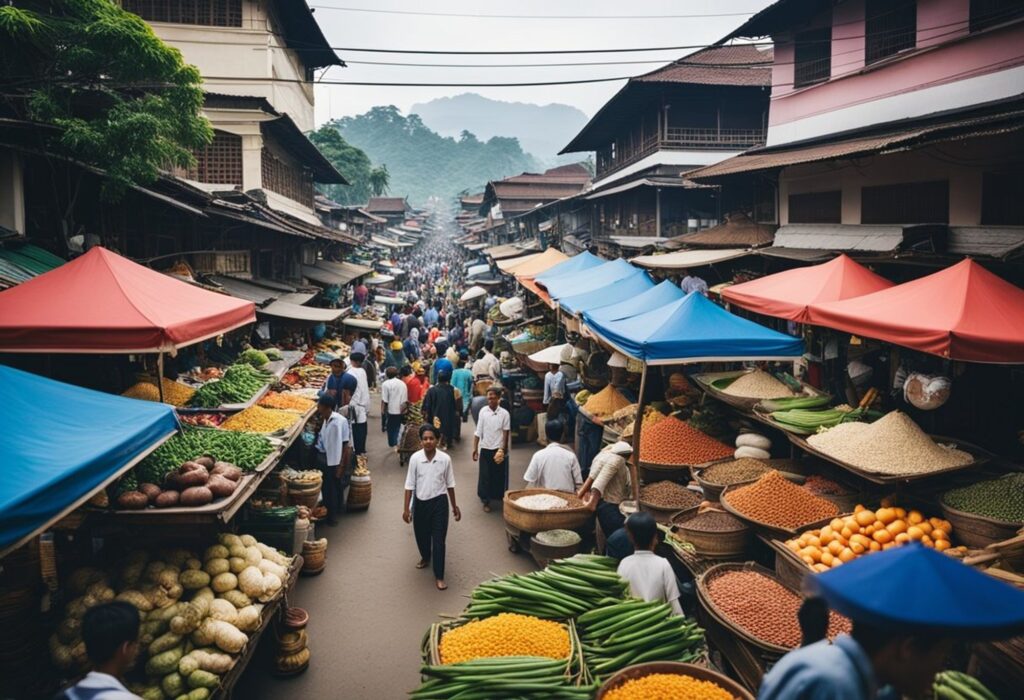
Understanding the Indonesian market is crucial for entrepreneurs looking to source products from the country. Indonesia is a diverse country with many different regions and cultures, which can make it difficult to identify the right sourcing opportunities. Additionally, Indonesia has a complex regulatory environment that can be challenging for foreign businesses to navigate. Entrepreneurs must be aware of the various regulations governing imports, exports, and business operations in Indonesia to avoid any legal issues.
Identifying Indonesian sourcing opportunities is another key aspect of Indonesia sourcing 101. Indonesia is known for its production of textiles, furniture, and electronics, among other products. However, entrepreneurs must be aware of the specific regions and suppliers that offer the best quality and pricing for their needs. Building relationships with Indonesian suppliers is also essential for entrepreneurs looking to establish a long-term sourcing operation in the country.
Key Takeaways
- Understanding the Indonesian market and its unique business culture is crucial for entrepreneurs looking to source products from the country.
- Identifying the right sourcing opportunities and building relationships with suppliers is key to establishing a successful sourcing operation in Indonesia.
- Entrepreneurs must be aware of the complex regulatory environment and infrastructure challenges in Indonesia to avoid any legal issues and ensure smooth logistics and supply chain management.
Understanding the Indonesian Market
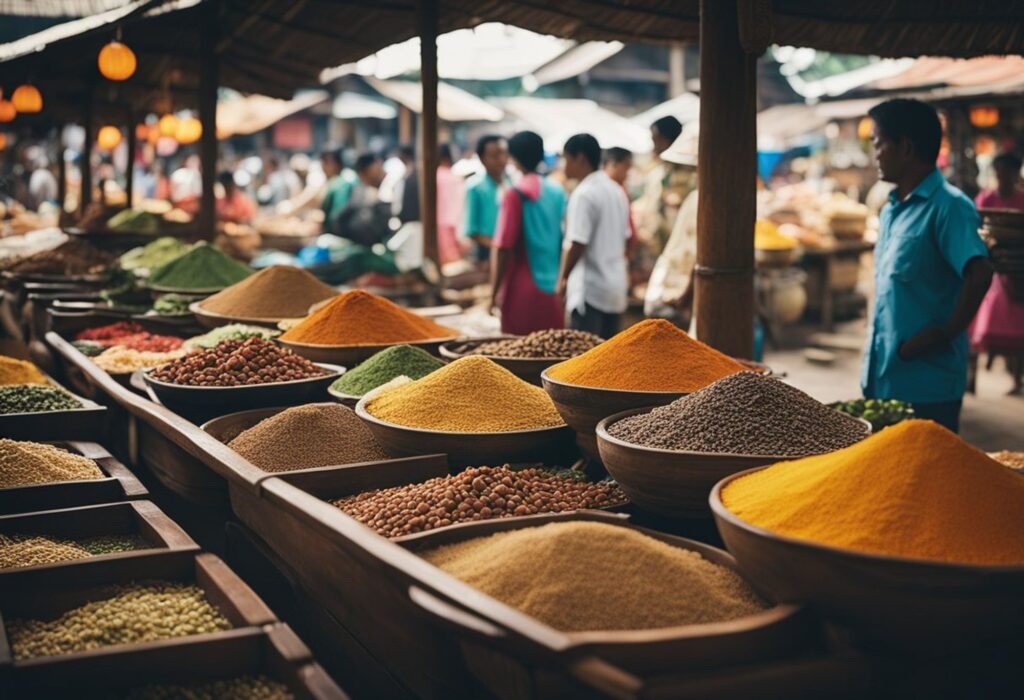
Indonesia is a country with a diverse and complex market. Before entering the market, entrepreneurs need to understand the economic landscape, cultural considerations, and legal framework.
Economic Landscape
Indonesia is the largest economy in Southeast Asia and the fourth most populous country in the world. The country has a growing middle class with rising disposable income levels, which creates opportunities for businesses to offer products and services imported from other countries. However, Indonesia also faces challenges such as infrastructure and bureaucratic hurdles that can affect supply chain operations.
Cultural Considerations
Indonesia is a diverse country with many islands, languages, and religions. Entrepreneurs need to understand the cultural nuances of the market they are targeting. For example, the majority of the population is Muslim, which means that businesses need to be aware of halal requirements for their products. Additionally, Indonesians value personal relationships and trust, which can affect business negotiations and partnerships.
Legal Framework
Indonesia has a legal system based on civil law, which means that laws are codified and written. Entrepreneurs need to understand the legal framework of the market they are targeting. For example, foreign businesses need to comply with regulations such as investment restrictions, licensing requirements, and tax obligations. It is important to work with experienced legal counsel to navigate the legal landscape in Indonesia.
In summary, understanding the economic landscape, cultural considerations, and legal framework is crucial for entrepreneurs who want to enter the Indonesian market. By doing so, they can make informed decisions and develop strategies to optimize their supply chain operations and business partnerships.
Identifying Indonesian Sourcing Opportunities
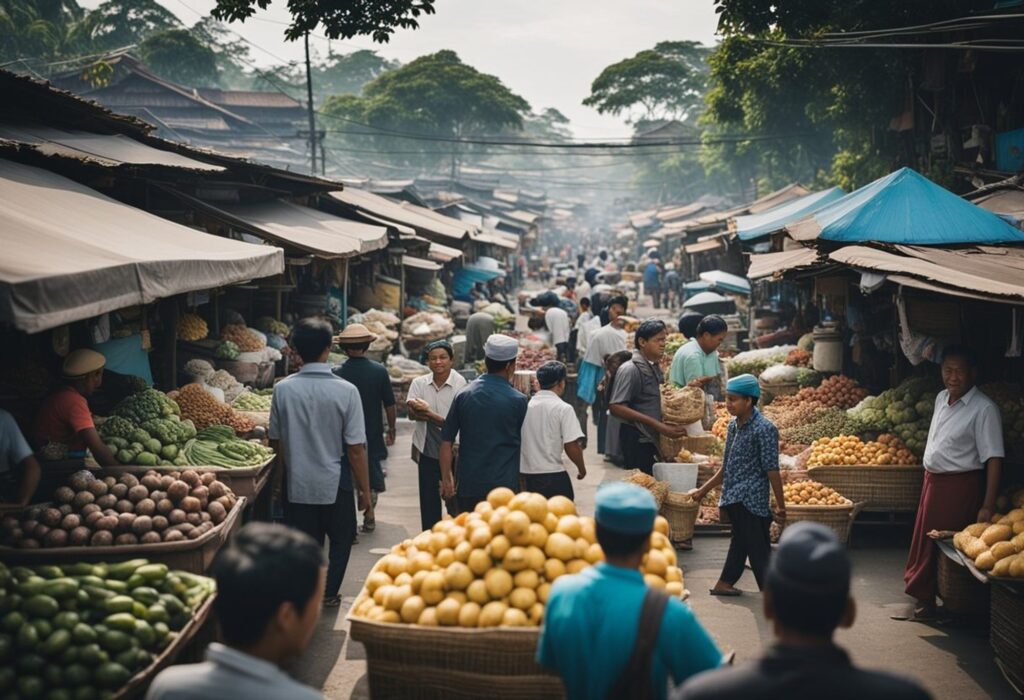
Indonesia is a country with a diverse range of industries, making it an attractive destination for entrepreneurs looking to source products. In this section, we will explore some of the key industries and emerging sectors in Indonesia that entrepreneurs should consider when identifying sourcing opportunities.
Key Industries
Indonesia’s key industries include textiles and apparel, automotive, electronics, and food and beverage. The textile and apparel industry is one of the country’s largest employers, with over 3 million people working in this sector alone. The automotive industry is also a significant contributor to the country’s economy, with major global manufacturers such as Toyota, Honda, and Mitsubishi operating in Indonesia.
The electronics industry is another key sector, with Indonesia being the largest market for smartphones in Southeast Asia. Finally, the food and beverage industry is a growing sector due to the country’s large population and increasing middle class.
Emerging Sectors
In addition to the key industries, there are also emerging sectors in Indonesia that entrepreneurs should keep an eye on. These sectors include renewable energy, e-commerce, and tourism. The renewable energy sector is growing rapidly due to the country’s abundant natural resources, such as geothermal and solar power.
E-commerce is also a growing sector, with Indonesia having the largest number of internet users in Southeast Asia. Finally, the tourism sector is a promising area for entrepreneurs due to the country’s natural beauty and cultural heritage.
Entrepreneurs looking to identify sourcing opportunities in Indonesia should consider these key industries and emerging sectors. By doing so, they can tap into the country’s diverse range of industries and find products that meet their needs.
Establishing Business Relationships
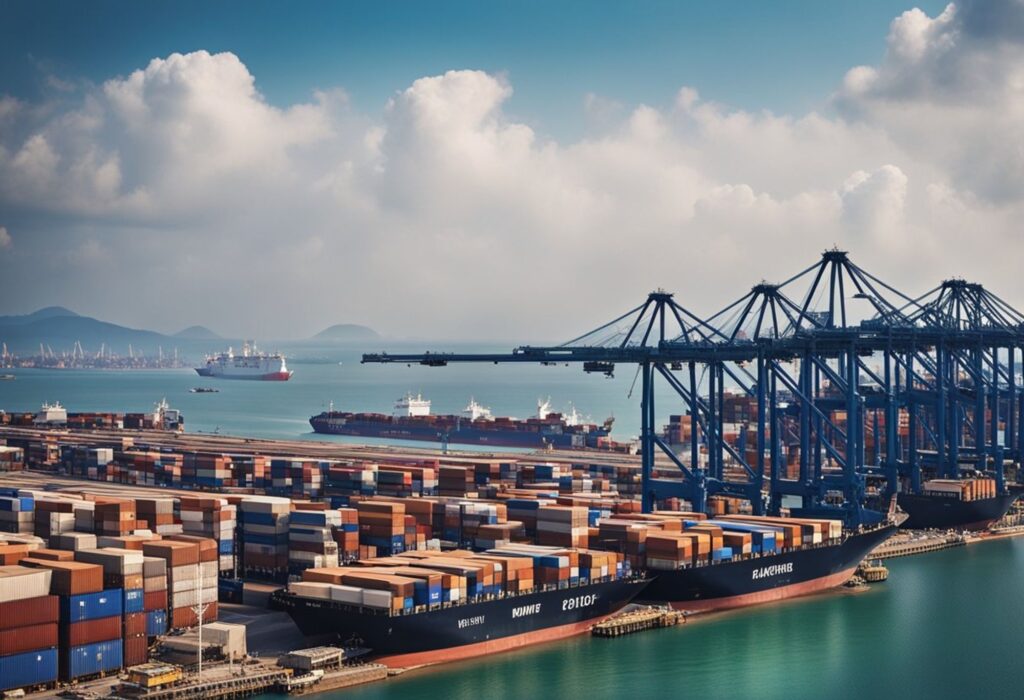
Establishing strong business relationships is crucial to success in Indonesia. The country values personal connections and trust, and building these relationships takes time and effort. Entrepreneurs must be patient and willing to invest in these relationships in order to succeed in the Indonesian market.
Finding Suppliers
Finding reliable suppliers is important for any business, but it can be particularly challenging in Indonesia. Entrepreneurs should conduct thorough research and due diligence to find reputable suppliers with a track record of delivering quality products on time. They can also attend trade shows and networking events to meet potential suppliers in person and build relationships.
Negotiation Strategies
Negotiating with suppliers can be a delicate process in Indonesia. Entrepreneurs should approach negotiations with respect and patience, and be prepared to compromise. They should also be aware of cultural differences in communication styles and adjust their approach accordingly. Building a strong relationship with a supplier can also help to facilitate smoother negotiations.
Building Trust and Rapport
Building trust and rapport is essential to successful business relationships in Indonesia. Entrepreneurs should take the time to get to know their suppliers and build personal connections. They can also demonstrate their commitment to the relationship by paying on time and following through on promises. Building a strong foundation of trust and rapport can help to ensure a long-lasting and mutually beneficial business relationship.
In summary, establishing strong business relationships is a key component of success in Indonesia. Entrepreneurs should invest time and effort in finding reliable suppliers, approach negotiations with respect and patience, and build trust and rapport with their partners. By doing so, they can build a strong foundation for long-term success in the Indonesian market.
Logistics and Supply Chain Management
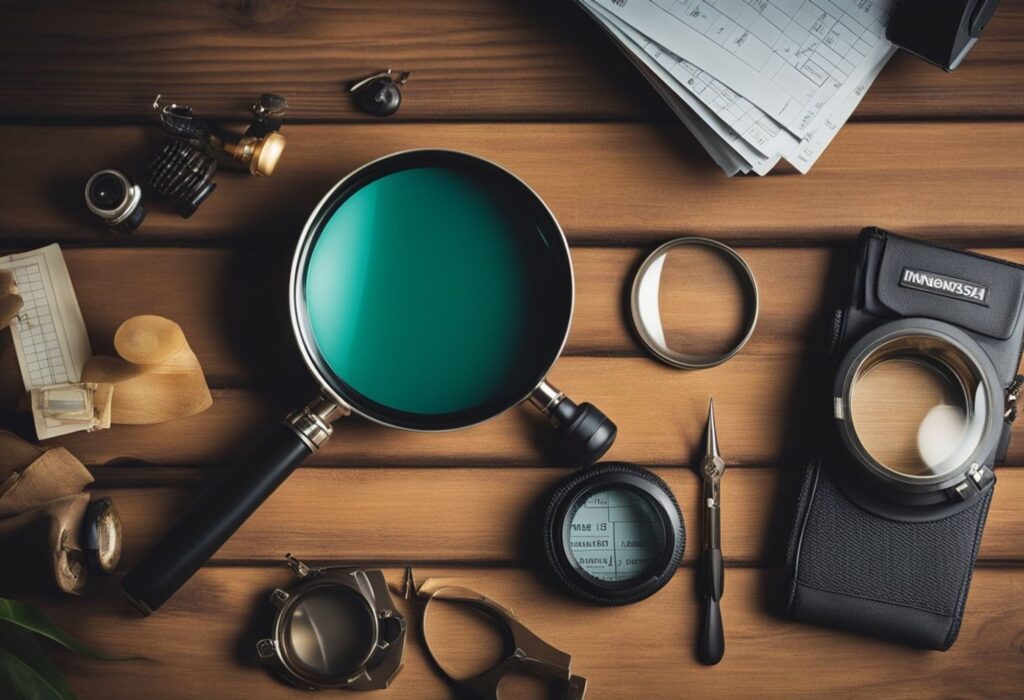
Managing logistics and supply chain operations in Indonesia can be challenging due to the country’s vast geography and complex bureaucracy. However, with the right knowledge and resources, entrepreneurs can navigate these challenges and build successful businesses. This section will provide an overview of the transportation infrastructure, customs and compliance, and inventory management in Indonesia.
Transportation Infrastructure
Indonesia’s transportation infrastructure is improving, but it still faces challenges. The country has over 17,000 islands, which makes transportation and logistics difficult. However, the government has invested in improving the transportation infrastructure, including building new highways, ports, and airports. The country also has a large railway network, which is being expanded to improve connectivity.
Entrepreneurs should consider the location of their suppliers and customers when choosing transportation methods. Road transport is the most common mode of transportation, but it can be slow and congested in urban areas. Air and sea transport are also viable options for longer distances, but they can be more expensive. Companies should also consider the reliability and safety of their transportation providers.
Customs and Compliance
Customs and compliance are important considerations when sourcing products from Indonesia. The country has complex regulations and bureaucracy, which can make it difficult to navigate the customs process. Entrepreneurs should ensure that they have the necessary permits and licenses to import and export goods. They should also be aware of the customs duties and taxes that apply to their products.
It is recommended that companies work with a customs broker or freight forwarder to manage the customs process. These professionals can help ensure that all necessary documents are in order and that the products are cleared through customs smoothly. They can also assist with compliance issues, such as ensuring that products meet safety and quality standards.
Inventory Management
Effective inventory management is critical for entrepreneurs sourcing products from Indonesia. The country has a diverse range of products, but lead times can be long and unpredictable. Companies should ensure that they have a clear understanding of their inventory needs and that they have a reliable supply chain in place.
It is recommended that companies work with suppliers who have a track record of delivering high-quality products on time. They should also consider implementing inventory management software to help track inventory levels and optimize ordering processes. Finally, companies should have a clear understanding of their storage and warehousing needs, including the costs associated with these services.
In summary, entrepreneurs sourcing products from Indonesia should be aware of the challenges and opportunities presented by the country’s logistics and supply chain operations. By understanding the transportation infrastructure, customs and compliance, and inventory management, companies can build successful businesses in this dynamic market.
Quality Control and Assurance
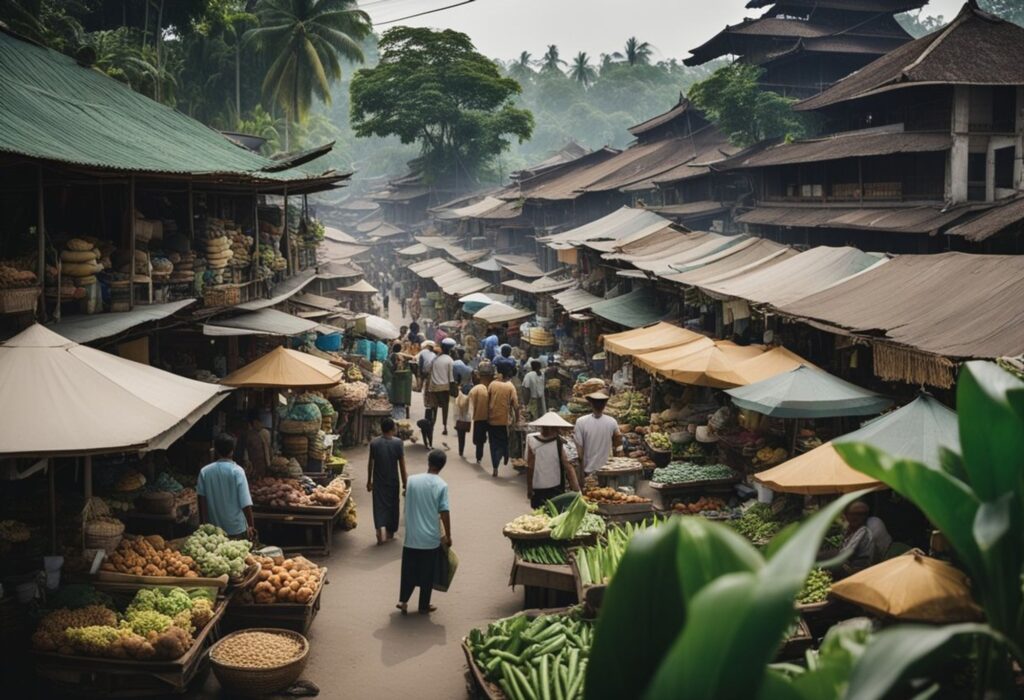
When sourcing products from Indonesia, it is crucial to ensure that the products meet the required quality standards. Quality control and assurance processes play a vital role in ensuring that the products meet the required specifications.
Standards and Certifications
Indonesia has established regulatory frameworks to align the country’s products and services with global quality benchmarks. These frameworks are aimed at ensuring that the products meet the required quality standards. Indonesia has various quality standards and certifications, such as ISO 9001, ISO 14001, and OHSAS 18001, which are recognized globally.
To ensure that the products meet these standards, it is essential to work with suppliers who have the necessary certifications. When sourcing products from Indonesia, entrepreneurs should ensure that their suppliers have the required certifications and comply with the relevant quality standards.
Inspection Processes
Inspection processes are critical in ensuring that the products meet the required quality standards. Indonesia has several third-party inspection companies that offer inspection services to entrepreneurs. These companies provide pre-shipment inspections, which are carried out before the products are shipped to the buyer.
Pre-shipment inspections involve checking the products’ quality, quantity, packaging, labeling, and shipping marks. The inspection process ensures that the products meet the required specifications and that there are no defects. It is essential to work with a reputable inspection company to ensure that the inspection process is thorough and accurate.
Dealing with Defects
Despite the quality control and assurance processes, defects may still occur. When defects occur, it is crucial to have a plan in place to deal with them. Entrepreneurs should work with their suppliers to develop a plan to address defects.
The plan should include the procedures for identifying defects, the corrective actions required, and the responsibilities of each party. It is essential to have a clear understanding of the defect resolution process to avoid disputes and delays.
In conclusion, quality control and assurance are critical when sourcing products from Indonesia. It is essential to work with suppliers who have the necessary certifications, carry out pre-shipment inspections, and have a plan in place to deal with defects. By following these processes, entrepreneurs can ensure that their products meet the required quality standards and avoid any potential issues.
Risk Management
Indonesia is a country with a diverse set of risks that entrepreneurs must be aware of when sourcing from local suppliers. By understanding these risks, entrepreneurs can take steps to mitigate them and ensure the success of their business.
Political Risks
Indonesia has a stable political environment, but entrepreneurs must be aware of the potential for political instability. Changes in government policies, regulations, and laws can impact the business environment. Entrepreneurs must stay up-to-date on political developments and be prepared to adjust their sourcing strategies accordingly.
Economic Risks
Indonesia’s economy is growing rapidly, but entrepreneurs must be aware of the potential for economic risks. Fluctuations in exchange rates, inflation, and interest rates can impact the cost of goods and services. Entrepreneurs must have a solid understanding of the local economy and be prepared to adjust their sourcing strategies to mitigate these risks.
Natural Disasters
Indonesia is prone to natural disasters such as earthquakes, tsunamis, and volcanic eruptions. These disasters can disrupt supply chains and impact the availability of goods and services. Entrepreneurs must have contingency plans in place to deal with these risks, including backup suppliers and alternative sourcing strategies.
Overall, entrepreneurs must be aware of the risks associated with sourcing from Indonesia and take steps to mitigate them. By staying informed and taking a proactive approach to risk management, entrepreneurs can ensure the success of their business.
Discover Indonesia Sourcing 101 with Buyamia!
Equip yourself with essential knowledge for successful sourcing in Indonesia. Learn the ins and outs, from navigating local markets to finding top-quality suppliers, and take your business to the next level. Click here to access Buyamia’s comprehensive guide and start your Indonesian sourcing journey today!

Leave a Reply